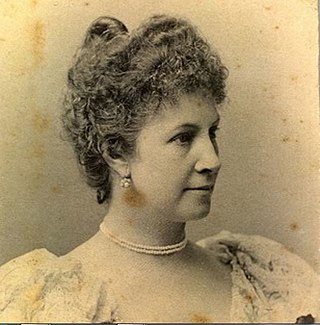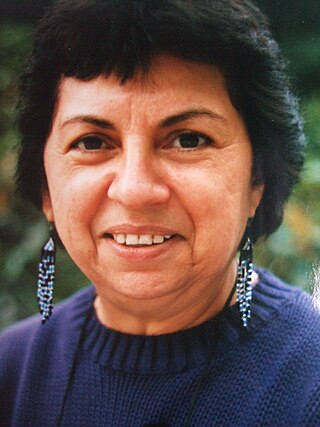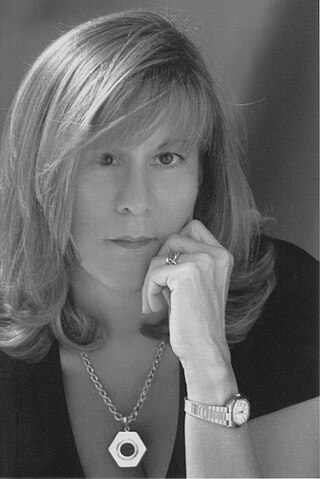Related Research Articles

Gertrudis Gómez de Avellaneda y Arteaga was a 19th-century Cuban-born Spanish writer. Born in Puerto Príncipe, now Camagüey, she lived in Cuba until she was 22. Her family moved to Spain in 1836, where she started writing as La Peregrina and lived there until 1859, when she moved back to Cuba with her second husband until his death in 1863, after which she moved back to Spain. She died in Madrid in 1873 from diabetes at the age of 58.

Clorinda Matto de Turner was a Peruvian writer who lived during the early years of Latin American independence. Her own independence inspired women throughout the region as her writings sparked controversy in her own culture.

Roberto Arlt was an Argentine novelist, storyteller, playwright, journalist and inventor.

Gloria Evangelina Anzaldúa was an American scholar of Chicana feminism, cultural theory, and queer theory. She loosely based her best-known book, Borderlands/La Frontera: The New Mestiza (1987), on her life growing up on the Mexico–Texas border and incorporated her lifelong experiences of social and cultural marginalization into her work. She also developed theories about the marginal, in-between, and mixed cultures that develop along borders, including on the concepts of Nepantla, Coyoxaulqui imperative, new tribalism, and spiritual activism. Her other notable publications include This Bridge Called My Back: Writings by Radical Women of Color (1981), co-edited with Cherríe Moraga.

Argentine literature, i.e. the set of literary works produced by writers who originated from Argentina, is one of the most prolific, relevant and influential in the whole Spanish speaking world, with renowned writers such as Jorge Luis Borges, Julio Cortázar, Leopoldo Lugones and Ernesto Sábato.
Walter D. Mignolo is an Argentine semiotician and professor at Duke University, who has published extensively on semiotics and literary theory, and worked on different aspects of the modern and colonial world, exploring concepts such as decoloniality, global coloniality, the geopolitics of knowledge, transmodernity, border thinking, and pluriversality. He is one of the founders of the modernity/coloniality critical school of thought.
Latin American studies (LAS) is an academic and research field associated with the study of Latin America. The interdisciplinary study is a subfield of area studies, and can be composed of numerous disciplines such as economics, sociology, history, international relations, political science, geography, gender studies, and literature.

Alicia Kozameh is an Argentine novelist, short story writer and poet, and Professor in the Creative Writing Program, Department of English, at Chapman University in Southern California. Kozameh has published seven novels, a collection of short stories and six books of poetry. She has also edited two anthologies and wrote a book in collaboration with other authors, former political prisoners from the last Argentine military dictatorship in her country.
Frederick B. Lindstrom was an American sociologist specializing in popular culture and demography who spent over four decades, starting in 1953, as professor of sociology at Arizona State University.
Orlandina de Oliveira is a Brazilian-born, naturalized Mexican sociologist and professor. Her areas of expertise are on social inequality, the status of women and youth, and the dynamics of labor markets. She has earned numerous honors for her academic research from international universities including the University of Texas at Austin, the University of Paris III: Sorbonne Nouvelle, and Harvard University.

Carmen Tafolla is an internationally acclaimed Chicana writer from San Antonio, Texas, and a professor emerita of bicultural bilingual studies at the University of Texas at San Antonio. Tafolla served as the poet laureate of San Antonio from 2012 to 2014, and was named the Poet Laureate of Texas for 2015–16. Tafolla has written more than thirty books, and won multiple literary awards. She is one of the most highly anthologized Chicana authors in the United States, with her work appearing in more than 300 anthologies.

Lourdes Espinola is a Paraguayan poet, diplomat, cultural promoter, and literary critic. Daughter of the laureate Paraguayan writer and philosopher Elsa Wiezell, Espinola's academic background includes the fields of health sciences, international relations, as well as philology and literature, at universities of the United States and Europe.
Susan Laura Mizruchi is professor of English literature and the William Arrowsmith Professor in the Humanities at Boston University. Her research interests include nineteenth- and twentieth-century American literature, religion and culture, literary and social theory, literary history, history of the social sciences, and American and Global Film and TV. Since 2016, she has served as the director of the Boston University Center for the Humanities.

Andrea Graciela Giunta is an Argentine art historian, professor, researcher, and curator.

Vera M. Kutzinski is an American academic and researcher who was born in Cuxhaven, Germany, in 1956. Since 2004, she has been the Martha Rivers Ingram Professor of English and Professor of Comparative Literature at Vanderbilt University. Kutzinski also directs the Alexander von Humboldt in English (HiE) project, a collaboration between Vanderbilt and the Institute of Romance Languages and Literatures at the University of Potsdam, Germany.
References
- ↑ Office of Public Affairs (The University of Texas at Austin) (
- ↑ Naomi Lindstrom, Professor (The University of Texas at Austin School of Social Work)